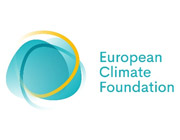
Peter Sweatman, Author
In order to meet the objectives of the Paris Agreement Europe will need to transition to a net-zero emissions economy by or before 2050. This requires indeed a major transformation, where today’s technologies such as wind and solar among others will need to continue to scale at an exceptional pace.
Nevertheless, this transformation will also need a rather quick increase of the readiness and deployment of the next generation of low-carbon technologies, innovative and enabling business models and customer engagement in all sectors of the economy that use or produce energy.
Drawing upon understandings and insights created by the low carbon pathways analysis and tools produced as a part of European Climate Foundations’s Net-Zero 2050 series of publications, and as Europe sets out its next research Framework Program Horizon Europe, its next seven-year budget and the set of instruments that will support Europe’s decarbonization and growth ambition, this report builds a set of forward-looking recommendations on how to orient future R&I funding to deliver competitive net-zero decarbonisation looking in depth at what it will take to fully decarbonise five sectors:
The experts engaged in this scenario analysis developed 58 “decarbonisation strategies” which combine to provide sector decarbonisation pathways for the five sectors to deliver a net-zero emissions economy in Europe by 2050. These strategies were used as the basic tools to inform an expert survey focused on Europe’s R&I investment needs to deliver them.
The conclusions of this work are driven by our meta research and assessment of past climate-related public and private R&I investments, combined with the input from 50 experts from 39 institutions working on energy, climate and innovation.
